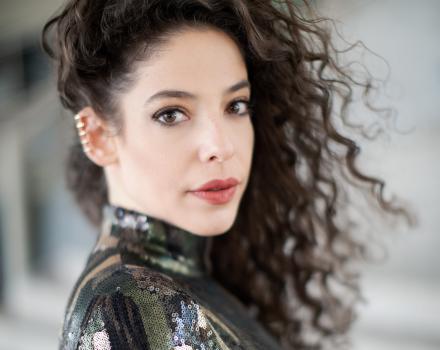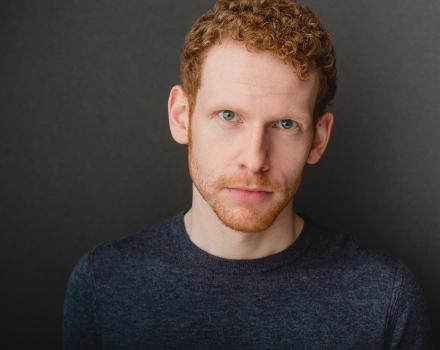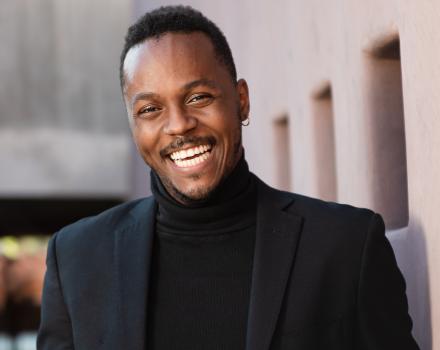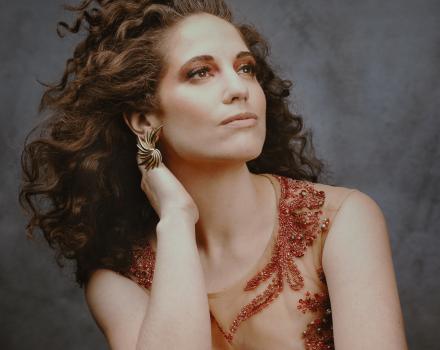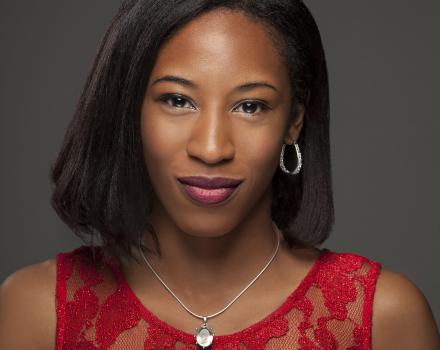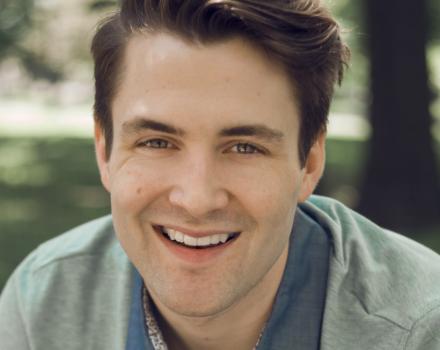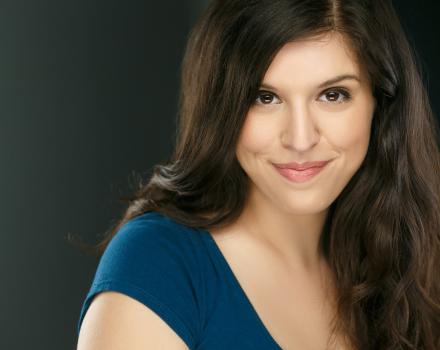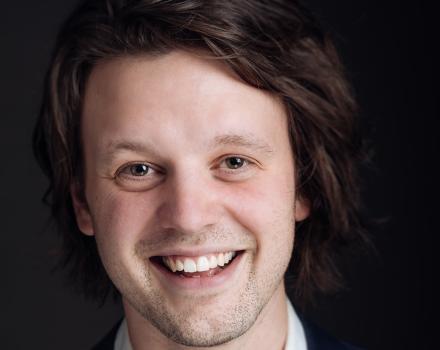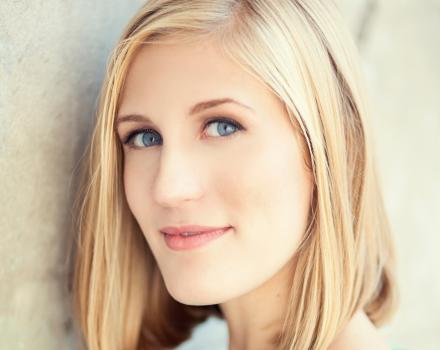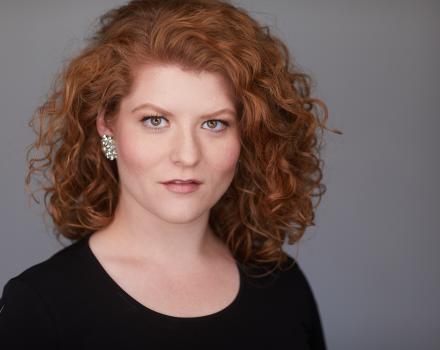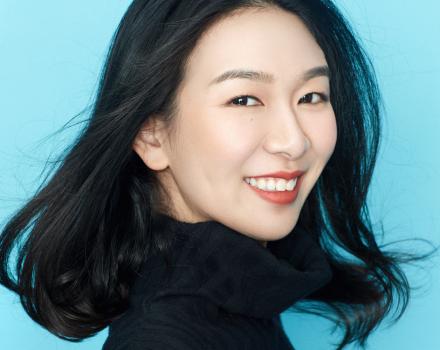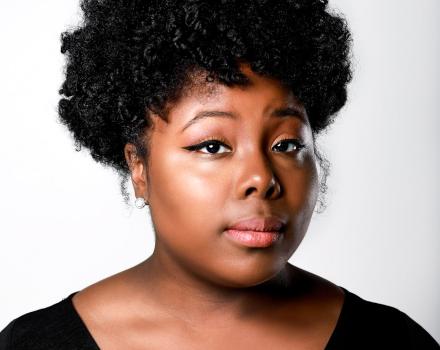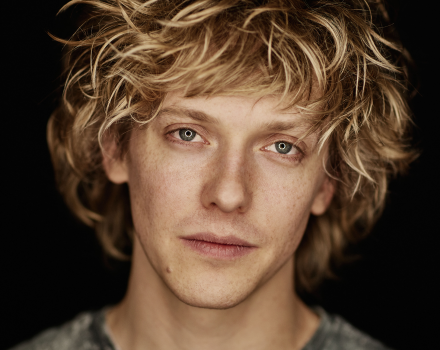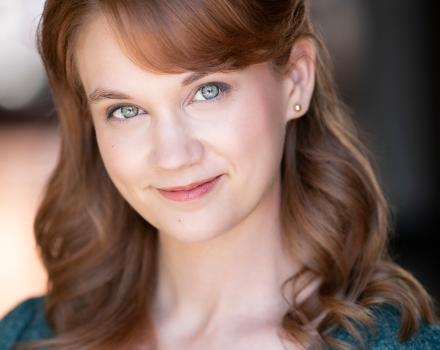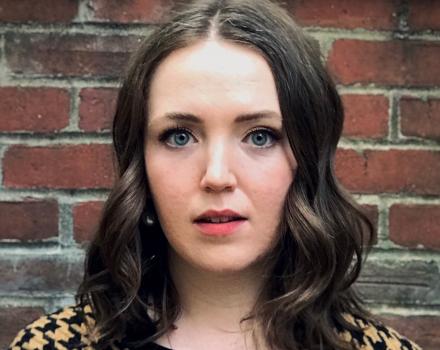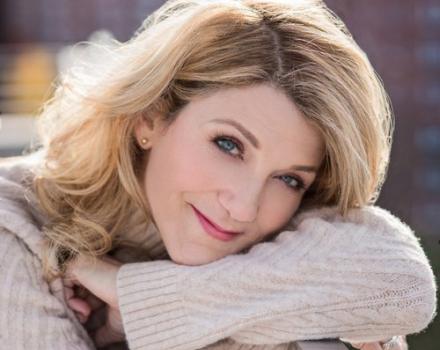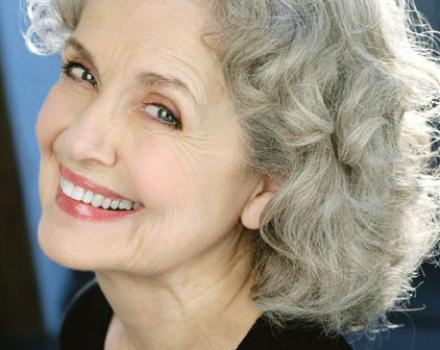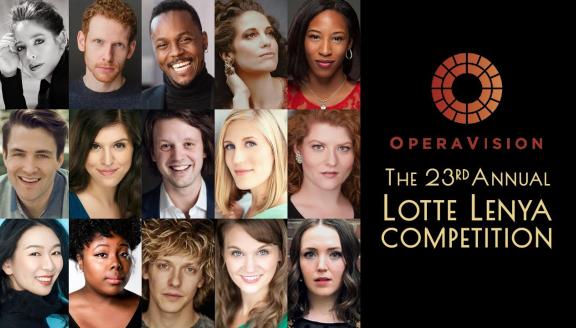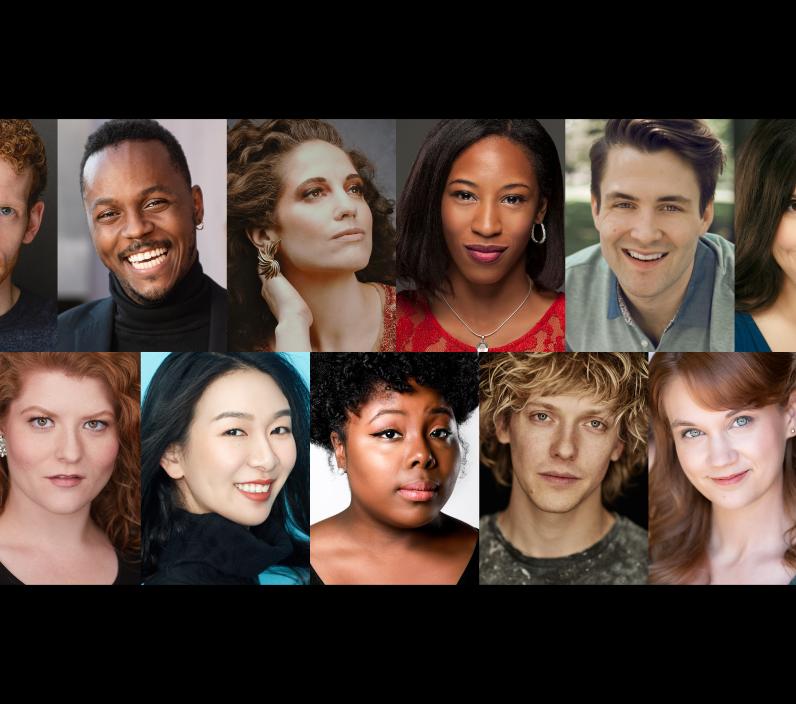

Lotte Lenya Competition Finals 2021

The finals of the 23rd annual Lotte Lenya Competition brings together 15 exceptional singing actors to New York City, vying for a top prize of $20,000. Emerging from a pool of 500 contestants from around the globe, Lenya Competition finalists will show they can ‘do it all’ by bringing to life four contrasting theatrical pieces.
In 1998, on the occasion of the centenary of the birth of Lotte Lenya, an extraordinary singer/actress and one of the greatest interpreters of her husband Kurt Weill's music, the Kurt Weill Foundation for Music established an annual competition bearing her name. It rewards talented young performers who, like Lenya herself, are convincing both dramatically and musically in a wide repertoire ranging from contemporary Broadway scores to opera/opera, not forgetting the works of Kurt Weill.
Cast
Contestants | Gan-ya Ben-gur Akselrod |
|---|---|
Judges | Victoria Clark |
| ... | |
Video
The story
Victoria Okafor
‘Du gai soleil’ from Werther – Massenet/Blau
‘Will He Like Me?’ from She Loves Me – Bock/Harnick
‘Still Hurting’ from The Last Five Years – Brown
‘Wie lange noch?’ – Weill/Mehring
Zachary Peterson, piano
Katrina Galka
‘A Cockeyed Optimist’ from South Pacific – Rodgers/Hammerstein
‘Es regnet’ – Weill/Cocteau
‘Maybe I Like It This Way’ from The Wild Party – Lippa
‘Caro nome’ from Rigoletto – Verdi/Piave
Shane Schag, piano
Max Chernin
‘Here I'll Stay’ from Love Life – Weill/Lerner
‘When The Air Sings of Summer’ from The Old Maid and the Thief – Menotti
‘She Loves Me’ from She Loves Me – Bock/Harnick
‘Wondering’ from Bridges of Madison County – Brown
Zachary Peterson, piano
Helen Zhibing Huang
‘Non, Monsieur mon mari’ from Les mamelles de Tirésias – Poulenc
‘Mira’ from Carnival! – Merrill
‘Perfect’ from Edges – Pasek, Paul
‘Denn wie man sich bettet’ from Aufstieg und Fall der Stadt Mahagonny – Weill/Brecht
Shane Schag, piano
Monica Dewey
‘A Ship without a Sail’ from Heads Up! – Rodgers/Hart
‘Se giunge un dispetto’ from Agrippina – Handel/Grimani
‘Youkali’ – Weill/Fernay
‘The Ocean’ from We Have Apples – Accurso/Griffin
Travis Bloom, piano
Kaden Forsberg
‘She Loves Me’ from She Loves Me – Bock/Harnick
‘Serenade’ from The Student Prince – Romberg/Donnelly
‘Lonely House’ from Street Scene – Weill/Hughes
‘Taking Flight’ from Allison Under the Stars – Goldrich/Heisler
Zachary Peterson, piano
Nicole Fernandez-Coffaro
‘Es zog zu Salomon’ from Der Kuhhandel – Weill/Vambery
‘The Joy You Feel’ from The Light in the Piazza – Guettel
‘Dearest Mama’ from The Ballad of Baby Doe – Moore/Latouche
‘I’m in Love with a Wonderful Guy’ from South Pacific – Rodgers/Hammerstein
Shane Schag, piano
Katherine Riddle
‘Je veux vivre’ from Roméo et Juliette – Gounod/Barbier & Carré
‘Moments in the Woods’ from Into the Woods – Sondheim
‘J'attends un navire’ from Marie Galante – Weill/Deval
‘A Quiet Thing’ from Flora the Red Menace – Kander/Ebb
Zachary Peterson, piano
Charles Eaton
‘A New Town Is a Blue Town’ from The Pajama Game – Adler, Ross
‘Mab, la reine des mensonges’ from Roméo et Juliette – Gounod/Barbier & Carré
‘In Praise of Women’ from A Little Night Music – Sondheim
‘Here I'll Stay’ from Love Life – Weill/Lerner
Shane Schag, piano
Taylor-Alexis DuPont
‘Non so più cosa son’ from Le Nozze di Figaro – Mozart/Da Ponte
‘Complainte de la Seine’ – Weill/Magre
‘Supper Time’ from As Thousands Cheer – Berlin
‘Waiting for Life’ from Once On This Island – Flaherty/Ahrens
Zachary Peterson, piano
Kaileigh Riess
‘Je suis encore tout étourdie’ from Manon – Massenet/Meilhac
‘Pretty Funny’ from Dogfight – Pasek, Paul
‘Somebody, Somewhere’ from The Most Happy Fella – Loesser
‘Je ne t’aime pas’ – Weill/Magre
Shane Schag, piano
Andrew Polec
‘She Loves Me’ from She Loves Me – Bock/Harnick
‘Bilbao-Song’ from Happy End – Weill/Brecht
‘Confession Aria’ from Dead Man Walking – Heggie/McNally
‘How Glory Goes’ from Floyd Collins – Guettel
Zachary Peterson, piano
Gan-ya Ben-gur Akselrod
‘Youkali’ – Weill/Fernay
‘Mister Snow’ from Carousel – Rodgers/Hammerstein
‘Gepopo's Aria’ from Le grand Macabre – Ligeti/Meschke
‘Perfect’ from Edges – Pasek, Paul
Shane Schag, piano
Ty Chiko
‘Where Is the Life That Late I Led’ from Kiss Me Kate – Porter
‘Here I'll Stay’ from Love Life – Weill/Lerner
‘Oh, Lawd, Jesus, heah my prayer’ from The Emperor Jones – Gruenberg/de Jaffa
‘Make Them Hear You’ from Ragtime – Flaherty/Ahrens
Zachary Peterson, piano
Rebekah Howell
‘Who Needs Love?’ from Ever After – Goldrich/Heisler
‘Wie lange noch?’ – Weill/Mehring
‘What Good Would the Moon Be’ from Street Scene – Weill/Hughes
‘Chacun le sait’ from La Fille du Régiment – Donizetti/Vernoy de Saint-Georges & Bayard
Shane Schag, piano
Insights
History of the Lotte Lenya Competition
In 1998, to celebrate the centenary of Lotte Lenya (1898-1981), an extraordinary singer/actress and one of the foremost interpreters of the music of her husband, Kurt Weill, the Board of Trustees of the Kurt Weill Foundation for Music approved President Kim Kowalke’s proposal to establish an annual Lotte Lenya Competition. The competition recognizes excellence, both vocal and dramatic in equal measure, in the performance of music for the theatre. Dr. Kowalke, professor emeritus of musicology at the Eastman School of Music, arranged for the inaugural contest to be held at Eastman to coincide with Sibley Music Library’s receipt of Weill’s original manuscript scores from Vienna—including that of his seminal work of 20th century musical theatre, Die Dreigroschenoper (The Threepenny Opera).
The first Lotte Lenya Competition, held in 1998, had just seventeen contestants, all of whom were Eastman students, and a top prize of $1,000. Year by year, the eligibility was expanded to include a broader segment of young artists, and the number of participants and prizes awarded also grew. The contest has since blossomed into an international competition for singers, with approximately 25% of all applicants coming from outside the United States each year. Top prizes have gone to finalists from the United States, Canada, China, Finland, Germany, New Zealand, Israel, Norway, and the United Kingdom. This year, 500 acting singers participated in the Lenya Competition, vying for a shot at the first prize of $20,000. Since the contest’s inception, the Kurt Weill Foundation has awarded more than $1.1 million in prize money to hundreds of singing actors.
Despite immense growth and minor changes to repertoire requirements, the essential concept of the Lenya Competition has remained the same. Contestants have always been required to sing a variety of selections, including arias from the opera or operetta repertoire, music by Weill, and songs from the American musical theatre. Its evaluation criteria have consistently included acting, interpretation, idiomatic performance, and stage presence, in addition to vocal technique, differentiating it from other singing competitions.
The Lenya Competition gained a foothold early on with the support of renowned soprano Teresa Stratas, whom Lenya crowned as her successor. Despite her skepticism of competitions, Stratas embraced the goal of deeply felt singing combined with equally genuine acting, and agreed to be a judge the first year. She became a strong advocate, judging the Competition ten times and always demanding the best from contestants. She has called it 'one of the most important international competitions in the world.'
The panel of finalist judges has always been made up of three musical theatre and/or opera experts with contrasting backgrounds and perspectives, typically a conductor/music director, stage director/producer, and a performer. Some of the distinguished judges have included legendary director and producer Harold Prince, conductors Julius Rudel and Ted Sperling, and performers Patricia Racette, and Rebecca Luker. In 2021, Tony Award winning actress, singer and director Victoria Clark returns to judge the competition alongside Broadway music director and conductor Andy EInhorn and Obie Award-winning actress and singer Mary Beth Peil.
In addition to the top prizes of $20,000, $15,000, and $10,000, finalists may be awarded at the judges’ discretion a number of special prizes. This year, the Kurt Weill Foundation inaugurated the Rebecca Luker Award, for an outstanding performance of a selection from the Golden Age of American musical theatre. The award was established in honor of Broadway star and six-time Lenya Competition judge, Rebecca Luker, who passed away late last year due to complications caused by ALS.
Gallery
